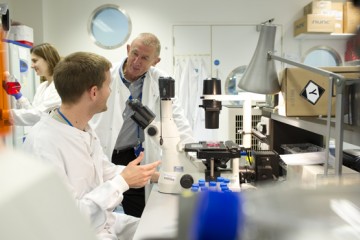Project grant
Development and validation of in vitro methods for assaying cancer stem cell responses to therapeutic challenge

At a glance
Completed
Award date
November 2009 - October 2012
Grant amount
£345,086
Principal investigator
Professor Ian MacKenzie
Institute
Queen Mary University of London
R
- Replacement
Read the abstract
View the grant profile on GtR
